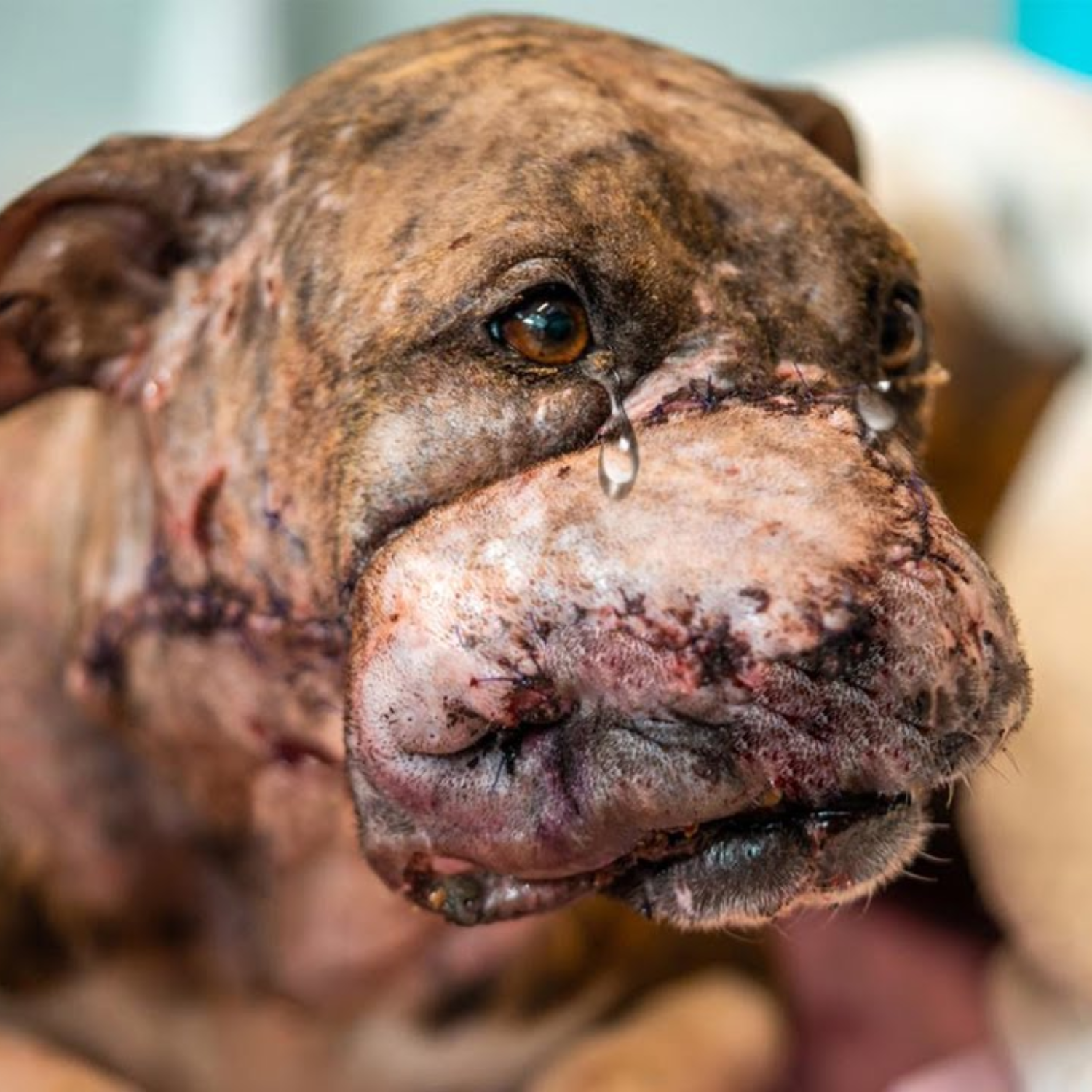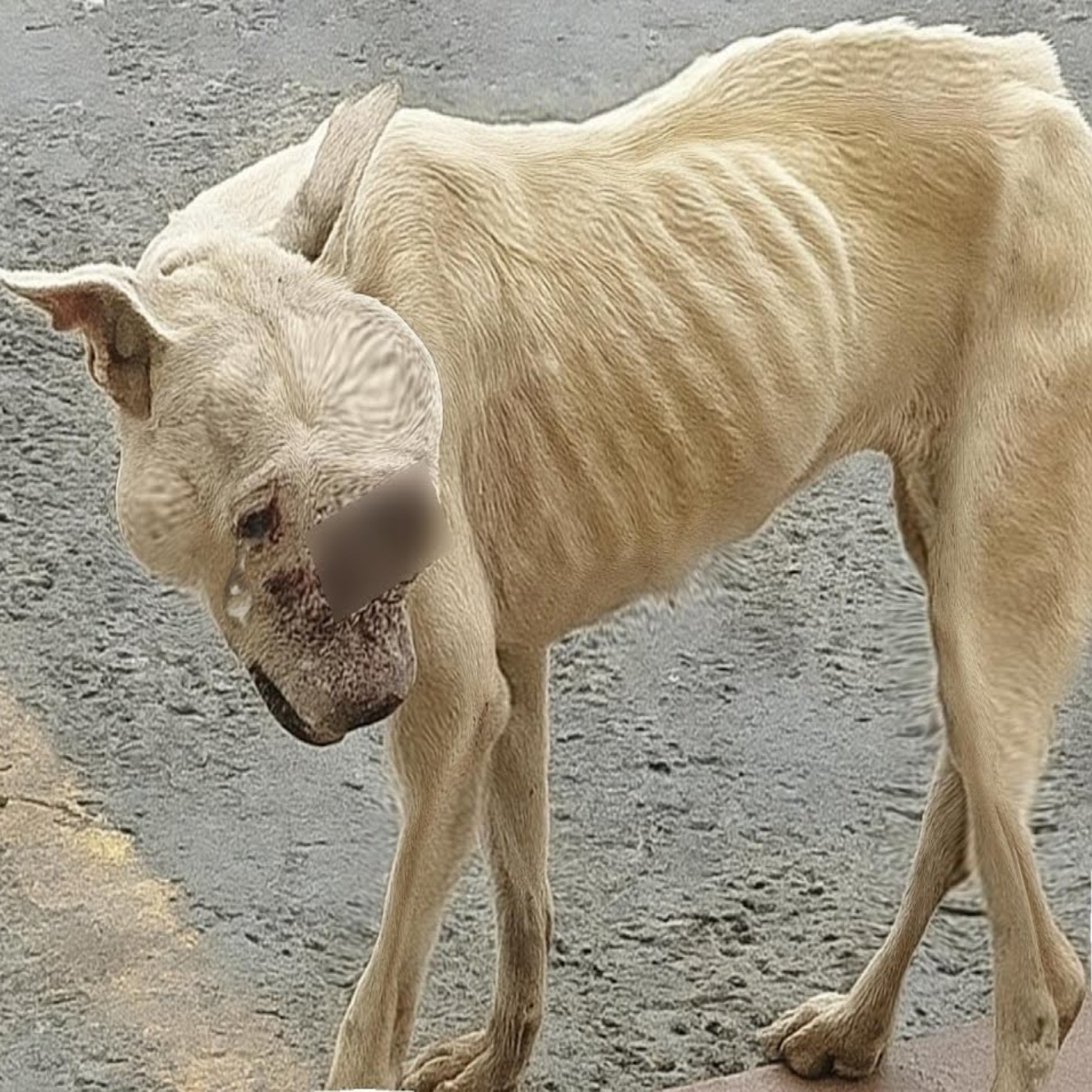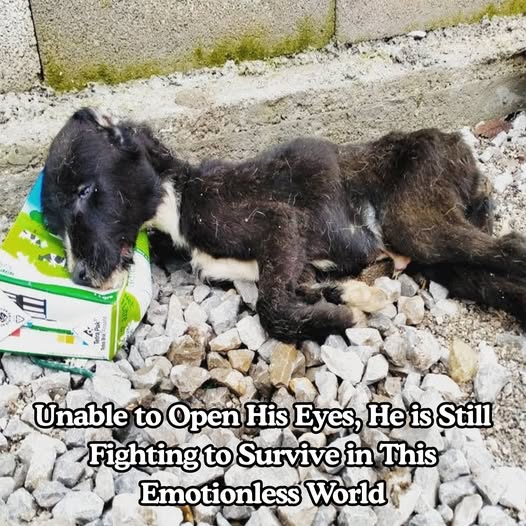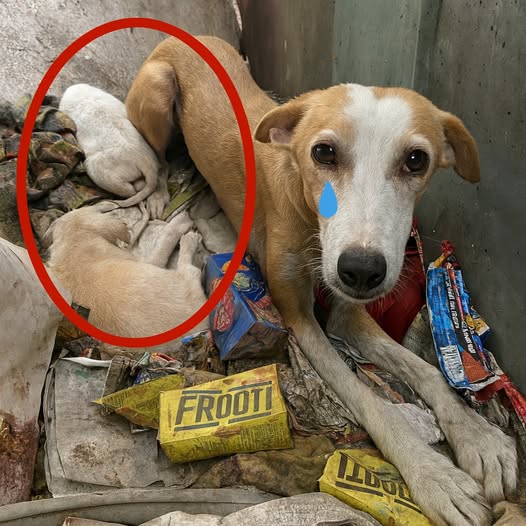It began with a box.
On an early morning walk, I noticed it sitting on the side of the road. It was unusual—not the kind of discarded crate you might expect to see abandoned carelessly, but a small wooden box, carefully decorated, almost as if it were meant to be a gift.
But inside was no gift.
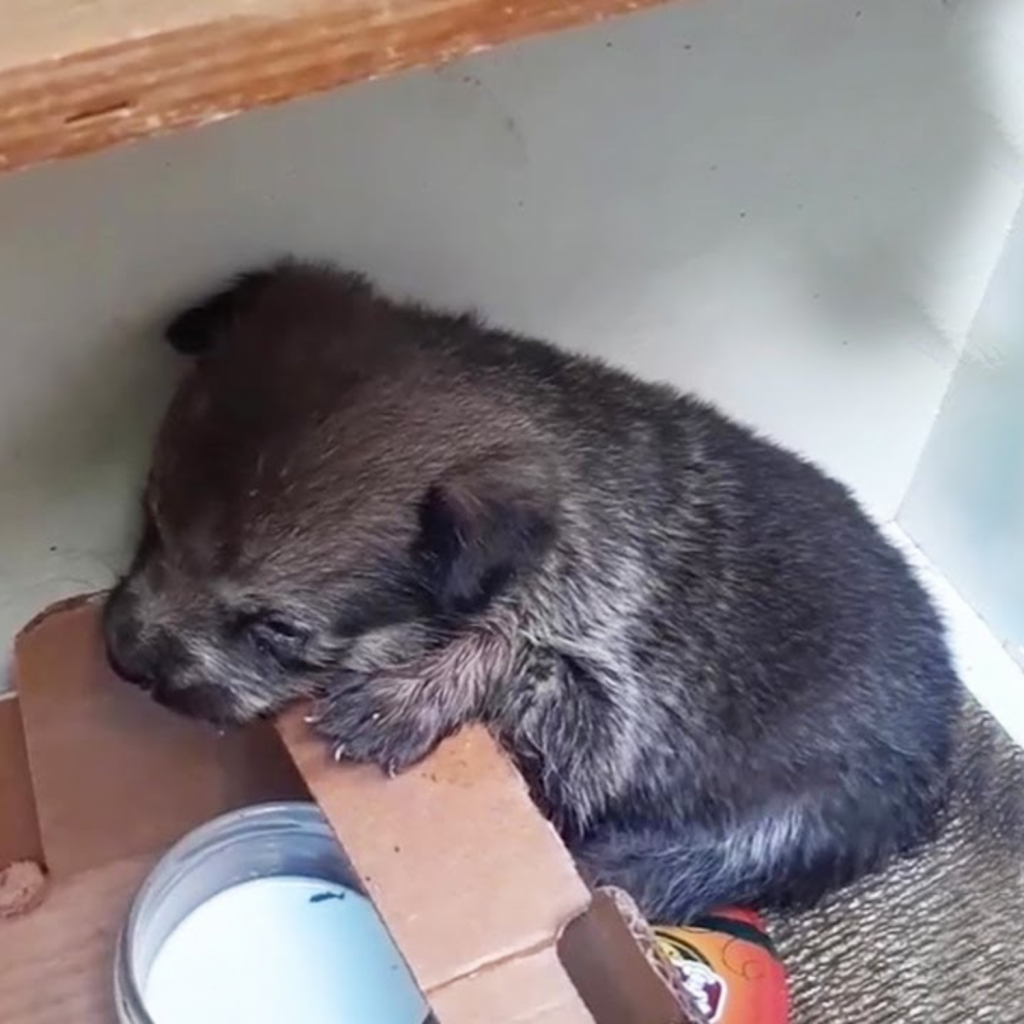
Curled up within, shivering and weak, was a newborn puppy. She couldn’t have been more than a few days old. Her tiny body trembled with exhaustion, her fur damp with the chill of the night. She had no mother beside her, no littermates to share her warmth, no comforting presence to ease her cries.
She tried to lap at a shallow bowl of milk someone had left, but she was far too weak to manage. Her cries pierced the quiet morning air, soft yet desperate, the sound of a baby searching for a mother who would never return.
I picked her up, and my heart broke.
Too Small, Too Weak
The little one was frail—skinny, dehydrated, and already battling more than she should. Her eyes, cloudy and sore, looked as though they carried cataracts. It was then I began to understand: someone had taken her from her mother, and upon realizing she was not perfectly healthy, abandoned her.
Her condition worsened quickly. Diarrhea left her weaker still, her tiny body crying out for the mother’s milk and warmth she so desperately needed. Following the veterinarian’s instructions, I gave her medicine, wrapped her in blankets, and fed her carefully drop by drop.
That night, she finally slept—her breathing steady, her body wrapped in warmth.
But she wasn’t sleeping alone.

A Guardian Appears
When I checked on her later, I noticed a familiar figure sitting nearby. Stefania, my gentle older dog, had settled herself right beside the puppy’s bed. She refused to move, watching over the fragile newcomer with quiet devotion.
It was as though Stefania understood. She seemed to sense the puppy’s loneliness and pain. Whenever the little one whimpered, Stefania pressed closer, shielding her from the cats who wandered curiously around the room.
That night, the diarrhea subsided, and the puppy was safe. For the first time, I felt a glimmer of hope.
Indigo’s First Days
I decided to name her Indigo. It felt right—unique, soft, and filled with quiet strength, just like her.
Indigo grew more curious by the day. At first, her vision remained poor—her cloudy eyes struggled to make sense of the world. But her other senses compensated beautifully. She had sharp ears and a nose that seemed to recognize every sound and scent.
She could find her toys in seconds, pawing at them, chewing them, and carrying them around proudly. She played with them all day, her spirit growing stronger even as her body remained small and fragile.
But I couldn’t ignore my worry. What if her eyes never healed? Would surgery help her? Could medicine restore her sight? Questions swirled in my mind, but for now, all I could do was give her love, patience, and time.

A Journey of Care
By the twentieth day, Indigo was strong enough to feed herself. No longer relying on a dropper, she eagerly devoured meals, her appetite signaling her determination to live.
With each passing week, she grew bigger, sturdier, and braver. Her wooden box had once been a prison of despair—but now, her world was opening wide.
Yet her eyes remained uncertain. So, with a heavy heart and a flicker of hope, we set off on a long journey to the veterinarian, hours away.
Indigo sat quietly during the drive, her head resting against my arm, as if she knew the journey was important. I prayed silently that the doctor would give us the miracle we longed for.
Hard Truths
At the clinic, after careful examination, the doctor shook his head gently. Surgery, he explained, would not help much. Her condition wasn’t something that could be easily fixed.
It was not the answer I had hoped for, but it was the truth.
Instead, he prescribed medication that could ease her symptoms and keep her comfortable. We returned home with bags of medicine and heavier hearts. But Indigo—resilient as always—reminded me that her life was not defined by her limitations.
With every dose, she grew a little stronger. With every day, she proved that happiness wasn’t about perfection—it was about love.

Blossoming into Herself
Months passed, and Indigo’s transformation was astonishing.
Six months later, the fragile newborn I had found in a decorated wooden box had become a beautiful young dog. Her coat gleamed, her body filled out, her steps were steady. She still had her struggles, but she faced them with courage and joy.
She loved to run, to play, to explore. She loved Stefania, who remained her guardian and mentor. And she loved the simple things—warm blankets, tasty food, and the human hands that had once lifted her from despair.
Indigo had not only survived; she had thrived.
A Lesson in Love
Looking back on her journey, I see more than a rescue story. I see a testament to resilience, to the power of love, and to the bonds that heal what medicine cannot.
Indigo’s eyes may never see the world as clearly as others do, but she sees with her heart. She knows the sound of her name, the scent of home, and the touch of love. And that is enough.
The box she was abandoned in has long been discarded. But Indigo carries no memory of despair—only the warmth of the life she was given.

Goodbye and Gratitude
When I look at her now, I feel peace. Indigo, once a helpless puppy left to die, now lives a life of comfort, joy, and belonging. She is proof that even the smallest, weakest soul deserves a chance—that every life, no matter how fragile, holds infinite worth.
Thank you for walking this journey with us. Thank you for witnessing the transformation of a puppy who once cried alone in a box, but now runs freely in a world that finally sees her for the miracle she is.
Indigo’s story is not just hers. It is a reminder to us all: when we choose compassion, we create hope. And when we create hope, we save lives.
